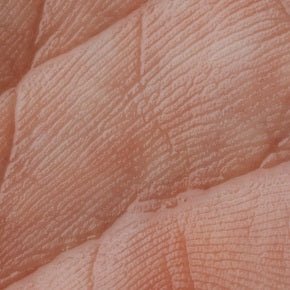Forget about the Mediterranean diet, it would appear as though the Nordic diet has taken over, if the latest nutritional research is to be believed, as the top diet for good health.
This week’s Nutrition News reports on the latest studies. Read them here.
Nordic diet for lower cholesterol
While previous research into the Nordic diet, which consists of berries, vegetables, fish, wholegrains, and rapeseed oil, linked it to weight management, a recent study has suggested that its benefits could extend to heart health through lowering cholesterol.
The study from the University of Copenhagen, reported by Science Daily, examined the blood and urine samples of 200 participants over the age of 50 with elevated BMIs and increased risk of diabetes and cardiovascular disease. The participants were split into two groups, one following a Nordic diet and one following their habitual diet as a control, and then monitored for six months. After which time it was clear that those on the Nordic diet achieved significantly better health outcomes with lower cholesterol levels, lower overall levels of both saturated and unsaturated fat in the blood, and better regulation of glucose all noted compared to the control group.
What is most interesting is that these health benefits, which are normally associated with losing weight, were achieved with their weight maintained as participants were asked to compensate for any weight lost whilst on the Nordic diet. It is thought that the dietary fats and unsaturated fatty acids consumed on the Nordic diet were what had the greatest effect on health, with fats from fish, flaxseeds, sunflower and rapeseed (Canola) all thought to have an impact.
More research is needed as the researchers are not yet clear how these fats had such a positive effect on both blood sugar and cholesterol levels but the results are promising.
Omega 3 reduces fall risk in the elderly
As well as supporting cholesterol levels as mentioned in the previous study, a group of researchers from the DO-HEALTH Research Group have found that omega 3 could have an impact on the rate of falls in the elderly.
The research, which was reported by NutraIngredients, suggests that supplementing with omega 3 earlier in life rather than later in life had a greater protective effect against fall risk. The study found that supplementing with EPA and DHA had a 10% reduction in fall risk when compared to a placebo whilst study participants who had a higher level of EPA and DHA at baseline had 17% lower incidence of falls.
The study looked at over 2,000 adults over the age of 70 from Switzerland, Germany, Austria, France, and Portugal who had not had any major health events in the five years prior to the study. Further research is needed to better assess what role omega 3 plays in reducing fall risk but the study’s authors hypothesise that, in addition to the anti-inflammatory effects and therefore muscle persevering benefits of the fish oil, it may be its role in cognitive health and cardiovascular support that helps lessen fall risk.
Placenta active in transferring vitamin D to foetus
We all know that the nutrients a mother absorbs during pregnancy and antenatal nutritional support has an effect on her unborn child but a recent study by researchers at the University of Southampton, and reported by Science Daily, has found that the placenta may have a more active role in delivering maternal vitamin D than we first thought.
Previously, research had led us to believe that maternal vitamin D transferred passively across the placenta but this new study challenges this line of thought. To investigate this mechanism, the study authors used human placental samples collected from term pregnancies immediately after delivery and placental fragment cultures, incubating the placental fragments with vitamin D alongside albumin for eight hours. The researchers found a significant increase in the expression of the CYP24A1 gene, which is involved in controlling the amount of vitamin D in the body, when compared to fragments with vitamin D only. This suggests that albumin plays an important and active role in vitamin D uptake.
These findings are significant as they could help inform potential targeted interventions to improve pregnancy outcomes in the future.
Share your thoughts
Agree with the findings in this week’s Nutrition News? Share your thoughts with us on Facebook and Twitter.
 Alison is the Founder of Metabolics who writes about Metabolics updates, events and natural healthcare. Her experience and passion for natural supplements and healthcare comes from her years of experience as a practising osteopath, having founded Metabolics in her search for high quality, natural products in her own work. Alison has been a qualified and practising Osteopath since 1981 and regularly gives seminars on a range of healthcare subjects to the wider practitioner community helping share her knowledge and experience.
Alison is the Founder of Metabolics who writes about Metabolics updates, events and natural healthcare. Her experience and passion for natural supplements and healthcare comes from her years of experience as a practising osteopath, having founded Metabolics in her search for high quality, natural products in her own work. Alison has been a qualified and practising Osteopath since 1981 and regularly gives seminars on a range of healthcare subjects to the wider practitioner community helping share her knowledge and experience.



